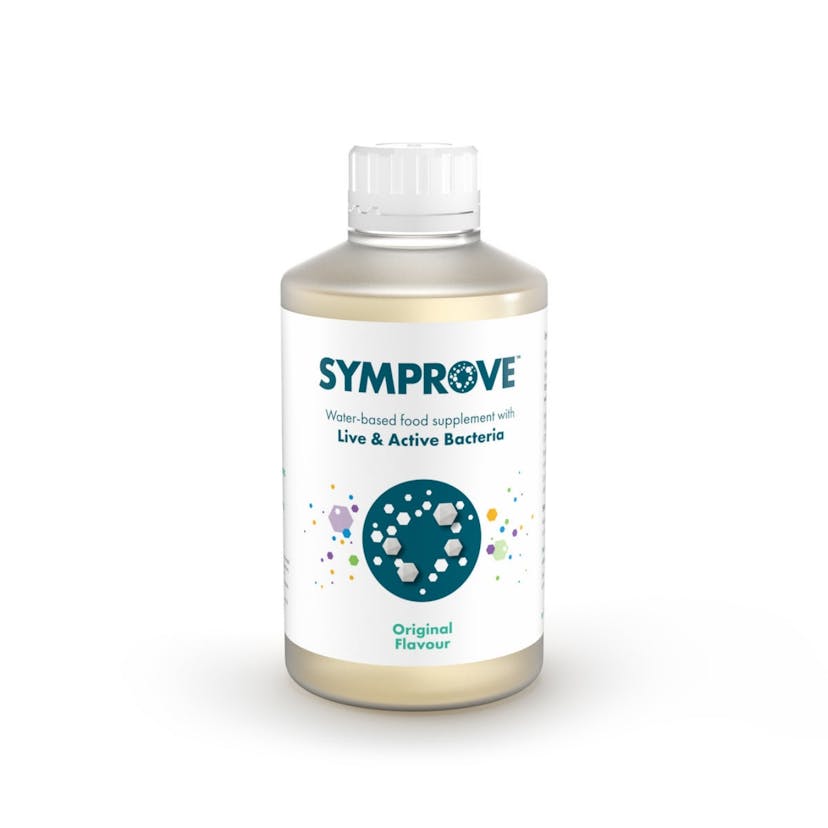The Signs Your Gut Microbiome Is Out Of Balance And Ways To Fix It
7 minutes read
The advice ‘trust your gut’ might matter more than just navigating life’s complexities. Multiple studies have shown that listening to your gut (and taking care of it) might help keep your mind and body in great shape.
The new nickname for the gut, is the ‘second brain’. Our gut impacts everything: skin health, mood, energy levels, and immunity. So, keeping your gut microbiome happy, healthy, and harmonious is vital to maintaining balance throughout the mind and body.
Beauty Daily talks to UK’s leading gut health specialists about all things gut microbiome: from its role, the signs your gut microbiome is out of whack and easy ways to restore and support it.

What is the gut microbiome?
Before we talk about the gut microbiome, let’s define the microbiome. The microbiome is an ecosystem of microbes: bacteria, fungi, and viruses that live in and on our bodies. These microbes are not equal; some are helpful, and others are potentially harmful.
There are two microbiomes: gut microbiome (which we’ll dive deep into in a sec) and skin microbiome. We wrote an extensive piece about Everything You Need To Know About Skin Microbiome here.
These two communicate via the ‘gut-skin axis.’ When the gut microbiome is altered, it negatively affects our skin microbiome. Studies have shown that when the percentage of harmful bacteria is high on the skin, a high level of these harmful bacteria is also present in our gut. This confirms that when the gut microbiome is out of balance, it causes problems with our skin microbiome, causing conditions like eczema.
The same goes for how the gut affects our mental health: gut and brain communicate via the gut-brain axis. The gut-brain connection is no joke, as it can link anxiety to digestion problems and vice versa.
Read next: How Your Mental Health Affects Your Skin’s Health
What is the function of the gut microbiome?
The gut microbiome plays a crucial role in regulating metabolism, boosting immunity, and protecting against pathogens (bacteria, viruses, or other microorganisms that can cause disease).
According to Dr Sammie Gill, PhD, RD specialist gastroenterology dietitian, and scientific research and development manager at Symprove, “The gut microbiome works with the immune system. Around 70% of your body’s immune cells reside in your gut.
So if we’re not optimising our gut health, it can alter our immune responses. Over time, this can lead to inflammatory diseases.”
Experts label the gut microbiome as a supporting organ because it plays so many vital roles in promoting the smooth daily operations of the human body.
What affects our gut microbiome and ways to fix it
1. Not eating a diverse range of foods
“Consuming an ultra-processed diet, high in refined carbohydrates and sugars and a diet low in fibre can harm the gut,” says Marilia Chamon, founder of Gutfulness Nutrition, a UK-registered nutritional therapist and gut health specialist. She adds: “Also, be wary with artificial sweeteners such as aspartame and sucralose.”
Limiting these foods and replacing them with a nutrient-dense diet is key.
“When restoring and supporting your gut health, diversity and abundance of beneficial bacteria is ideal to making the gut microbiome robust. Eating a variety of fruits, vegetables, whole grains, legumes, nuts, and seeds,” Chamon says.
A study by the American Gut Project found that eating 30 different plant foods per week is associated with greater microbial diversity in the gut.
Chamon recommends: “You can also include fermented foods such as kefir, sauerkraut, kimchi, and tempeh as those are packed with probiotics, aka live bacteria – however, it is important to highlight that they can exacerbate gut symptoms if your microbiome is out of balance.”
Other factors to consider are you can also boost your microbial diversity by “being outdoors and exercising”. Chamon adds.
2. Supplement with probiotics
While leading a healthy lifestyle and consuming a rainbow diet are key to a healthy and happy gut, supplementing your diet with probiotics won’t hurt. It gives you peace of mind when slacking a day or two on the healthy eating department, especially with the festive dinners and parties coming. We’ve got some helpful tips here on How To Look After Your Digestive System During The Seasonal Festivities
Make sure that when you go probiotic shopping, you pick the one specific to your needs. Not all probiotics are the same, as thousands of different probiotic strains exist.
For gut health, experts recommend looking for strains E. faecium, L. rhamnosus, L. plantarum, and L. acidophilus. These carefully selected four bacteria strains work in synergy to help support your gut microbiome. All of these are found in Symprove, starting from £39.99.

The British Society of Gastroenterology recommends 12 weeks when trying a new bacteria-based supplement. So for this supplement to work, you may have to commit 12 weeks to take effect. Try Symprove Probiotic Drink 12-week pack £149.99.
Read next: Nutritionist-Approved Guide To Clean Eating
3. Antibiotics and other medications
Antibiotics are important medicines used to treat infections and diseases caused by bacteria. However, one of their drawbacks is that they affect both good and bad bacteria. “This is not to say we should not be taking them, but do so with caution and only when needed,” Chamon advises.

4. Lack of sleep and circadian rhythm disruption
A recent study found that sleep deprivation leads to changes in gut microbiome composition. An imbalanced gut is linked to sleep loss, circadian misalignment (inappropriately timed sleep and awake cycle) and metabolic disease.
This is because the gut microbiome influences the production of serotonin, which regulates sleep.
“It’s important to prioritise quality and quantity of sleep. Aim for up to nine hours per night, keep timings consistent, limit screen time a few hours before bed and keep the room cool at night to mimic the drop in body temperature,” Dr Gill advises.
Read next: Sleep Experts Share Adult Night Routine Tips For A Good Slumber
5. Chronic stress⠀⠀
Eating a healthy diet will go to waste if you are constantly stressed out. Studies show that elevated stress levels can affect gut bacteria to a similar degree as a high-fat diet.
Try relaxation breathing exercises. It’s one of the easiest and most effective ways to reduce stress, increase calm, boost immunity, and improve sleep. Just breathe.
Dr Gill suggests mindfulness activities: “Meditation or yoga and using apps (Calm, Headspace, Ten Percent Happier). Then, put aside ‘protected time’ and do an activity that relaxes you, such as reading a book or going for a 30-minute walk”.
Or better yet, create your self-care activity list. Read 8 Fun Self-Care Activities For A Better Life or if you feel the holiday stress is creeping in, find helpful tips to combat it here The Christmas Self-Care Tips Mental Health Experts Use
6. Excess alcohol consumption
The festive parties are just around the corner. If you’re serious about taking better care of your gut, slow down on alcohol. Chronic alcohol consumption can cause serious problems, leaving your gut microbiome out of whack. Not to mention it can seriously add a few years to your skin.
Read next: Does Alcohol Age Your Skin? The Experts Weigh In
What are the signs your gut microbiome is out of balance?
- Constipation or diarrhoea
- Bloating and excessive gas
- Abdominal pain and discomfort
- Multiple food intolerances and sensitivities
- Unexpected weight gain
- Skin irritations such as eczema, rosacea, and psoriasis
- Sleep disturbances or constant fatigue
- Anxiety, depression, mood swings
“Digestive symptoms are the most common signs that your gut microbiome could use some help,” says Chamon.
But before you conclude that you suffer symptoms of an imbalanced gut microbiome, Chamon strongly advises that: “It is important to rule out any medical condition as many health conditions can promote symptoms such as the ones mentioned.
For example, Irritable Bowel Syndrome (IBS) is possibly the health condition most associated with an imbalance of gut bacteria or gut dysbiosis. But it does not end there. The gut microbiome has been associated with several health conditions, including autoimmune, cardiometabolic diseases and mental health disorders,” she says.
Should you get a gut microbiome test?
According to Chamon, taking a gut microbiome test is unnecessary: “If you don’t experience digestive symptoms, have no restrictions in eating a wide range of foods and have regular and pain-free bowel movements, most likely you have a healthy gut.”
However, if that is not the case, a functional stool test can give a great insight into what’s happening in the gut ecosystem. Gut microbiome test measures the amount and types of microbes, such as bacteria and viruses, in your gut via a stool sample.
“I do recommend taking gut microbiome test if clients are experiencing chronic symptoms. However, I don’t recommend direct-to-consumer kits as those are not as insightful as the ones available to medical professionals.
In my private practice, I use tests available via a practitioner only and backed by clinical literature, enabling significant clinical output. I don’t recommend direct-to-consumer gut microbiome tests as those hardly provide relevant information apart from telling you, ‘Eat more of this, less of that’. With trillions of microbes living in our guts, it is not as simple as that,” Chamon concludes.
Sign up for our newsletter
We will keep you in the loop for special offers, exclusive gifts and product news.

